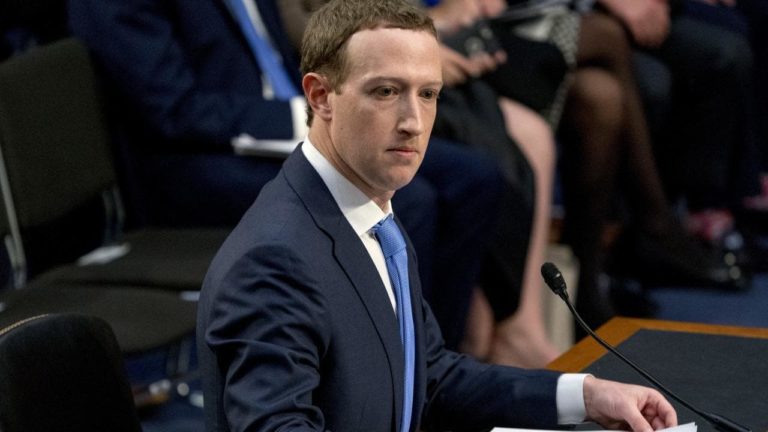Facebook CEO Mark Zuckerberg kicked off his company’s annual developer conference acknowledging that 2018 has been an “intense year” so far, but offered no apology for the company’s big privacy scandal.
Speaking in San Jose, California, at the F8 gathering of software developers, tech folks and others, Zuckerberg said to cheers that the company is re-opening app reviews, the process that gets new and updated apps on its services.
He also reiterated that Facebook is investing a lot in security and in strengthening its systems so they can’t be exploited to meddle with elections.
“The hardest decision I made wasn’t to invest in safety and security,” Zuckerberg said. “The hard part was figuring out how to move forward on everything else we need to do too.”
It’s been six weeks since the Cambridge Analytica scandal broke, revealing that the political data-mining firm inappropriately accessed the information of as many as 87 million Facebook users. Facebook has been doing damage control ever since — at least until today.
For Zuckerberg, that’s meant repeated apologies to users and lawmakers, two days of congressional questioning about whether and how the company protects its users’ privacy. For Facebook, it’s also meant further limiting the data developers can access and how long they can access it; several audits; and the suspension of apps suspected of violating Facebook’s rules around user privacy.
But after several weeks on the defensive over the scandal, Zuckerberg was clearly back in techno-enthusiasm mode. He unveiled an array of new Facebook and Instagram features, including live video chats on Instagram, a Facebook dating service, and a way for users to clear their browsing history from the service, leaving the company blind about what websites users have visited.
He was also clearly more at ease than his recent appearances in Congress. Yet another feature called “Watch Party” will let users gather to watch video together, Zuckerberg said — like “your friend testifying before Congress.”
“Let’s not do that again soon,” he said.
Zuckerberg also addressed the recent departure of Jan Koum, the co-founder and CEO of messaging platform WhatsApp, which Facebook acquired for $19.3 billion in 2014.
Despite reports that Koum left over concerns about how the company handles private data, Zuckerberg thanked Koum and called him “a tireless advocate for privacy and encryption.”
Zuckerberg also touted Facebook’s new $199 virtual reality device, called the Oculus Go , saying everyone in attendance would get one for free. The company announced the device six months ago but didn’t specify when it would go on sale.
Unlike the Oculus Rift, a $399 VR device that must be tethered to a personal computer, the Oculus Go is portable. Facebook is counting on the Oculus Go to widen the audience for VR.
Last year, Zuckerberg described his strategy for using VR to reshape the way people interact and experience life, much as the company’s social network already has. His goal is to have 1 billion people immersed in VR on Oculus headsets at some indeterminate point in the future.
(AP)











